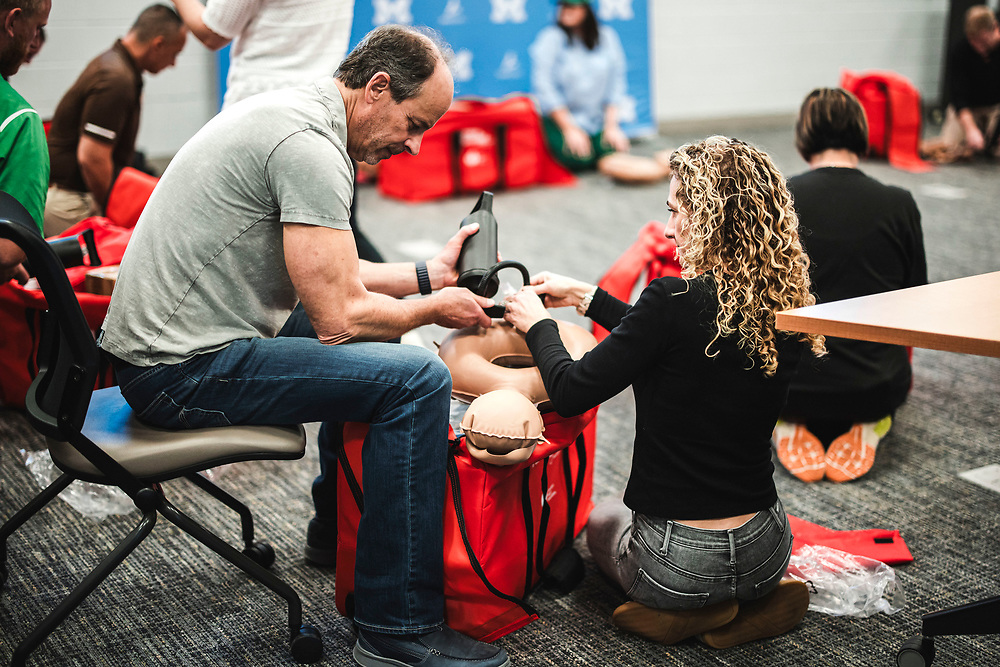New York Jets and American Heart Association Partner to Enhance Cardiac Emergency Preparedness in New Jersey Schools

Summary
Full Article
The recent partnership between the New York Jets and the American Heart Association (AHA) to deliver CPR and automated external defibrillator (AED) training to representatives from 12 New Jersey schools is a testament to the power of collaborative efforts in addressing public health challenges. Held at Mahwah High School, this initiative is a beacon of hope for enhancing community resilience against cardiac emergencies, a leading cause of death outside hospital settings.
Cardiac arrest survival rates outside hospitals are alarmingly low, with nearly 90% of cases ending in fatality, often due to the absence of immediate CPR. The AHA's emphasis on the life-saving potential of timely CPR underscores the urgency of widespread training. Nancy Brown, AHA's CEO, articulates the critical window of opportunity in cardiac emergencies, where the presence of trained individuals can dramatically alter outcomes.
The initiative's focus on schools is particularly poignant, given that a significant portion of cardiac arrests occur in homes. By equipping schools with CPR in Schools kits, including manikins and AED training tools, the program not only educates but also empowers students, faculty, and parents to act decisively in emergencies. The donation of AEDs to select schools further bolsters their capacity to respond effectively.
Hands-Only CPR, the technique taught during the training, demystifies the process, making it accessible to all. Jesse Linder of the New York Jets highlights the team's dedication to community health, reinforcing the importance of accessible CPR training and AEDs. This effort mirrors the NFL's broader commitment to cardiac health through The Smart Heart Sports Coalition, aiming to implement life-saving policies nationwide.
With the AHA marking its centennial in 2024, this collaboration is a milestone in its mission to foster health and hope globally. By expanding the network of individuals trained in CPR, the initiative strengthens the chain of survival, offering a lifeline in the critical moments following a cardiac arrest. The implications of this program extend beyond the immediate beneficiaries, setting a precedent for community-based health interventions that can save lives across the nation.

This story is based on an article that was registered on the blockchain. The original source content used for this article is located at NewMediaWire
